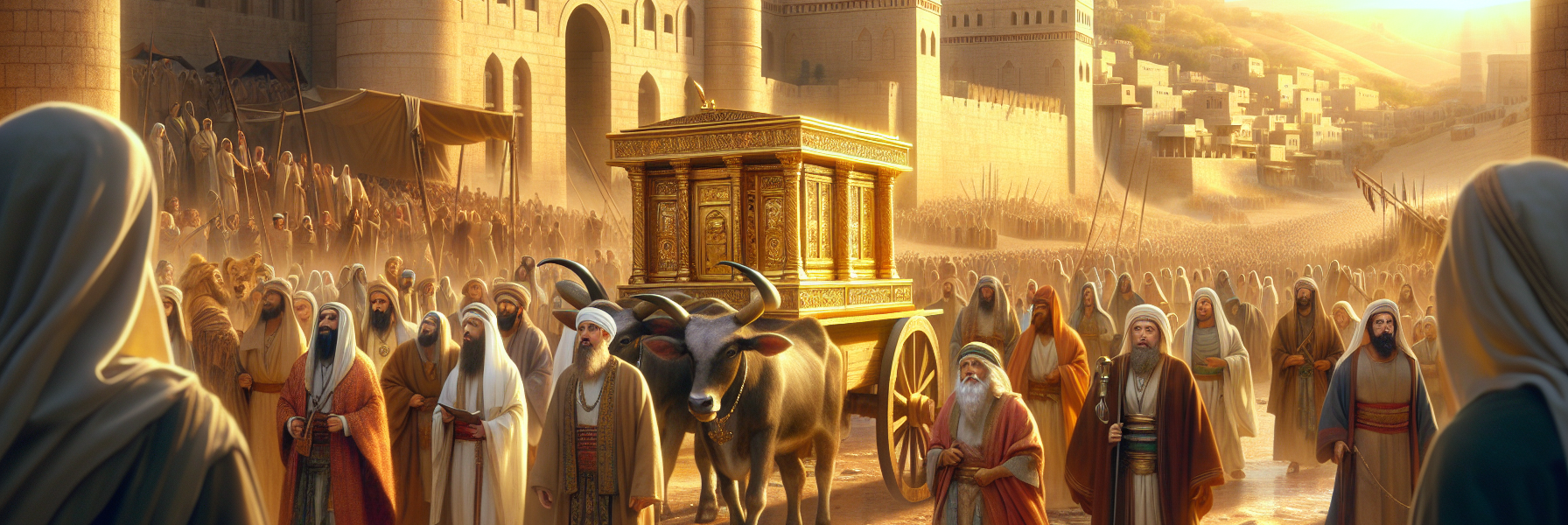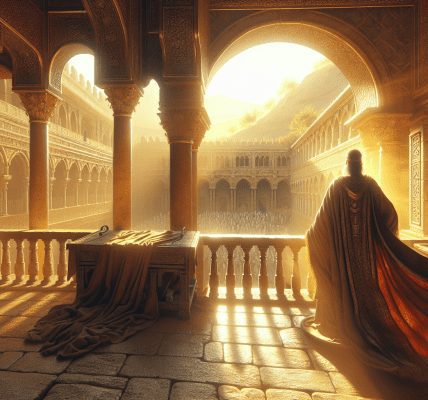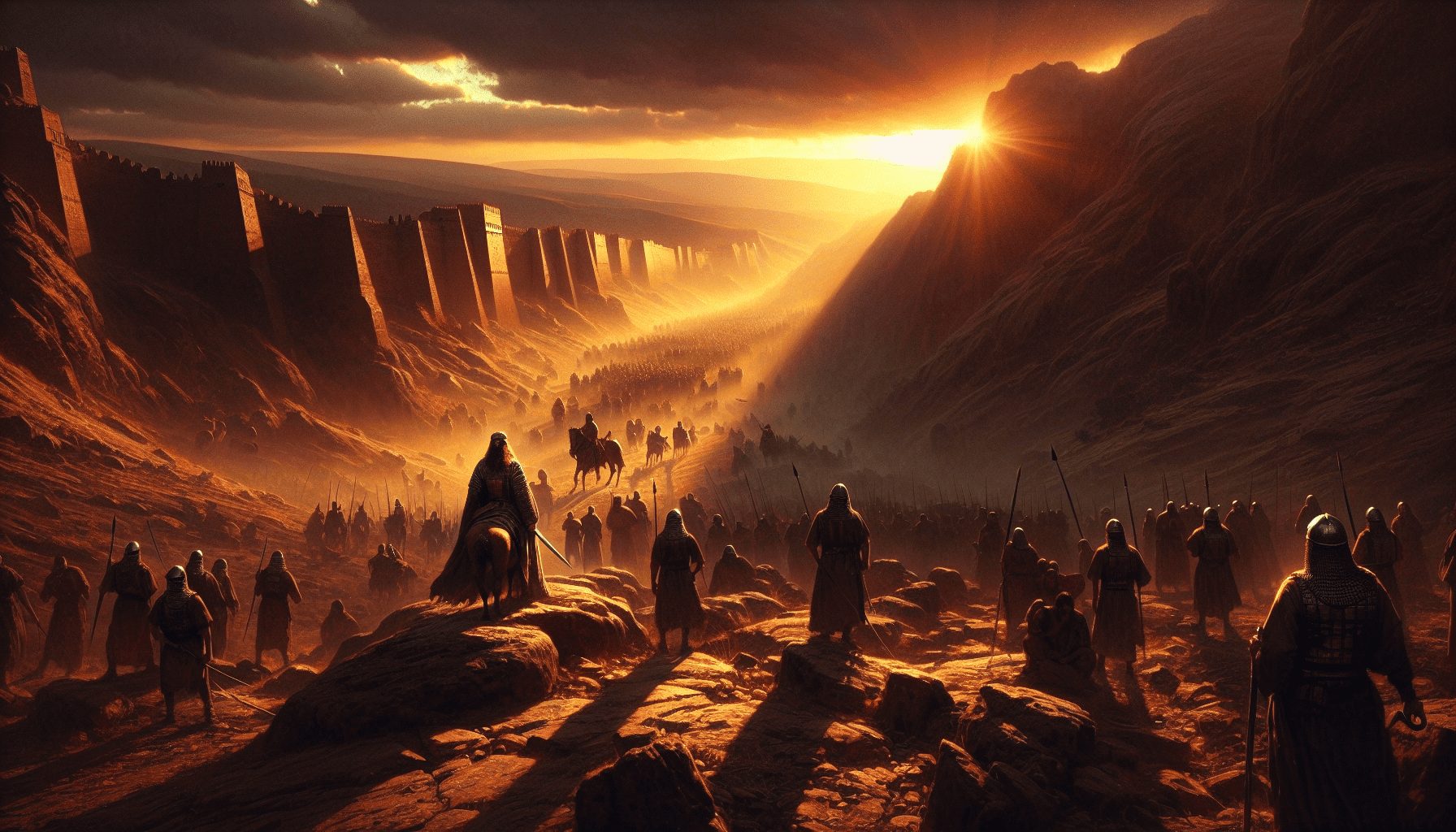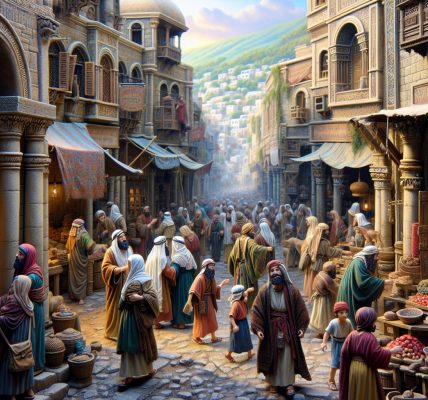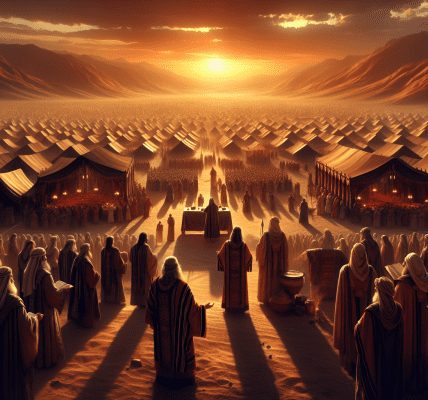**The Sacred Procession: The Ark Enters Jerusalem**
The sun hung low over the hills of Judah, casting golden rays upon the bustling city of Jerusalem. King David, his heart aflame with zeal for the Lord, had summoned all Israel—priests, Levites, commanders, and elders—to fulfill a sacred duty long overdue. The Ark of the Covenant, the very throne of God’s presence among His people, had dwelt in obscurity in the house of Obed-Edom for three months, blessing his household abundantly. Now, it was time to bring the Ark home, to the place David had prepared in the City of David.
But this time, the king would not repeat the mistake of his first attempt. The memory of Uzzah’s death still weighed heavily upon him—how the well-meaning man had reached out to steady the Ark when the oxen stumbled, only to be struck down by the holiness of God. David had learned a painful lesson: the Ark was not merely a sacred relic; it was the dwelling place of the Almighty, and it demanded reverence, order, and obedience to His commands.
With solemn determination, David declared to the assembly, “No one but the Levites may carry the Ark of God, for the Lord chose them to bear the Ark and to minister before Him forever.” The Levites, the chosen servants of the Lord, were called forward—the descendants of Kohath, Merari, and Gershon—each clan assigned its sacred duty.
The priests, clad in fine linen robes, purified themselves for the task. The Levites who would bear the Ark on their shoulders washed their hands and feet, consecrating themselves before the Lord. Even the musicians and singers prepared, tuning their harps, lyres, and cymbals, their voices lifted in readiness to praise the God of Israel.
Then came the moment of departure. The Ark, gleaming with gold and overshadowed by the outstretched wings of the cherubim, was lifted carefully by the Levites upon their shoulders, using the poles as the Law prescribed. No cart would carry the Ark this time—only the hands of those whom God had appointed.
As the procession began, the air thrummed with anticipation. David, dressed in a simple linen ephod like the priests, danced with abandon before the Lord, his heart overflowing with joy. The sound of trumpets blared, cymbals crashed, and the voices of the singers rose in triumphant chorus:
*“Sing praises to the Lord, all you saints of Israel!*
*Give thanks to His holy name!*
*For His mercy endures forever!”*
The streets of Jerusalem echoed with the sound of worship. Women leaned from windows, children clapped their hands, and even the sternest elders could not suppress smiles at the sight of their king, humbled yet exultant in the presence of his God.
But not all eyes were filled with joy. Michal, David’s wife and Saul’s daughter, watched from a palace window. Her lips curled in disdain as she saw David leaping and dancing like a common reveler. In her pride, she despised him in her heart, forgetting that this was no ordinary celebration—it was the return of the King of Glory to His rightful place among His people.
At last, the Ark reached the tent David had prepared for it. With great care, the Levites set it down in the midst of the tabernacle. The king himself offered burnt offerings and peace offerings, the smoke of the sacrifices rising to heaven as a sweet aroma to the Lord. Then, with hands raised in blessing, David distributed gifts to all the people—loaves of bread, portions of meat, and cakes of raisins—so that every man and woman of Israel might feast in the joy of the Lord.
As the celebrations continued late into the night, David turned to bless his household. But Michal, waiting with cold words of reproach, met him at the door. “How glorious the king of Israel looked today,” she sneered, “uncovering himself like a vulgar fool before the eyes of his servants’ slave girls!”
David’s joy did not waver. “It was before the Lord that I danced,” he replied, his voice steady. “He chose me above your father and all his house to appoint me ruler over Israel. Therefore, I will celebrate before Him—and I will become even more undignified than this, humbling myself in my own eyes, but honored in the eyes of the Lord.”
And from that day, Michal bore no child, a silent witness to the cost of despising the worship of God. But the Ark remained in Jerusalem, a sign of God’s favor, and David’s reign was marked by the presence of the One who had chosen him.
For when God’s people honor Him in reverence and joy, He dwells among them—and no power on earth can withhold His blessing.
